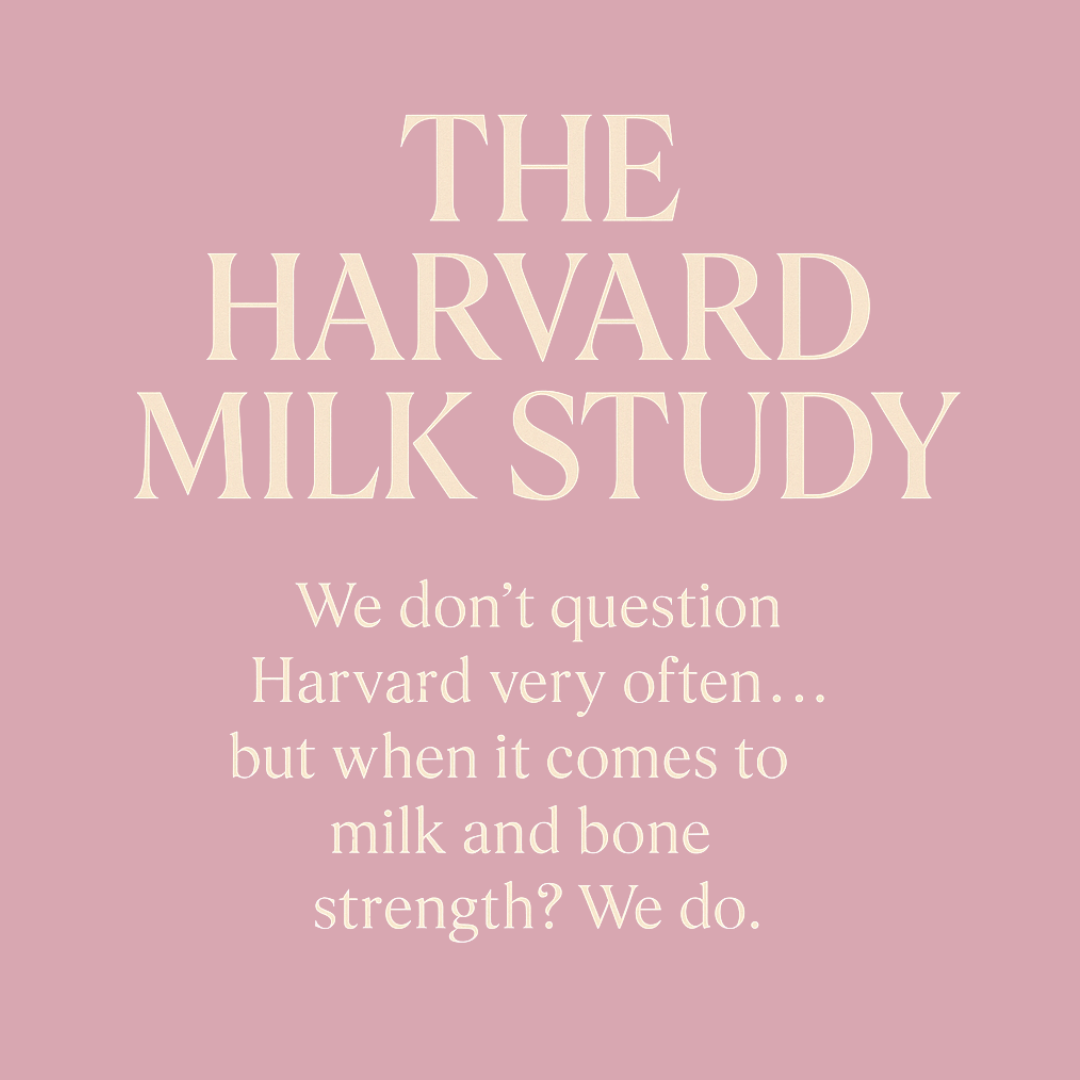You’ve been told for decades: milk builds strong bones. But here’s something few brands ever mention—it may not.
In a long-term Harvard study of nearly 78,000 women, those who drank two or more glasses of milk per day had a higher risk of hip fractures compared to those drinking less than one a week. That goes against the whole marketing narrative we’ve believed for years.PubMed+6PCRM+6American Journal of Public Health+6
📉 What the study found:
Each additional 200 ml (roughly one glass) of daily milk was linked to a 2–9% increase in hip fracture risk, with risk peaking around 400 ml/day.
Women drinking ≥3 glasses/day had up to a 93% higher mortality risk, and significantly more fractures compared to less frequent consumers. American Journal of Clinical Nutrition+12TIME+12SpringerLink+12
Keep in mind—that doesn’t mean milk causes fractures personally. But it does challenge the assumption that more calcium automatically equals stronger bones.
Why this happens (and why it matters)
Lactose and galactose (milk sugars) may contribute to oxidative stress and inflammation, which actually weaken bone integrity over time.
- Research consistently shows that calcium supplements don’t lower fracture risk either—and may even cause side effects like kidney stones or heart issues. American Journal of Clinical Nutrition+8Harvard Health+8Harvard Health+8
But not all dairy is the same
Emerging studies show that cheese and fermented dairy (like yogurt) are associated with a 15–19% lower risk of hip fractures. American Journal of Public Health+5PubMed+5SpringerLink+5
A large U.S. cohort suggested that 2+ servings of milk per day correlated with an 8% lower risk of hip fractures—but that was never confirmed to be better than less. PubMed+1
What Royalicious teaches instead:
1. Bone health relies on how calcium is used, not just how much you get.
Magnesium, vitamin D3, and K2 are the guardians that help calcium land where it belongs—your bones.
2. Movement beats milk.
Regular balance and resistance work (even 10–15 mins/day) will always matter more than drinking extra calcium.
3. Your nectar matters more.
Our Strong Bones, Soft Glow drink gives your body the nutrients it needs to use calcium wisely—no dairy, no fluff, just nourishment and intention.
| Belief | What the Research Says |
|---|---|
| Lots of milk = fewer fractures | Not always—Harvard found higher fracture risk with high intake. |
| Calcium tablets prevent breaks | No—studies show no fracture benefit and added risks. |
| All dairy is equal | Not true—cheese & yogurt show better outcomes than milk. |
Plant-Based Milks vs. Dairy Milk: A Bone-Supporting Pivot
🥛 Why Dairy Isn’t Always a Win for Bone Health
The myth that more milk equals stronger bones has quietly unraveled in recent years.
In fact, a Harvard study of nearly 78,000 women found that drinking two or more glasses of milk daily was linked with a higher risk of hip fractures, compared to those who drank less than one glass a week. Surprisingly, more calcium from dairy didn’t lower fracture risk—and may have increased it. PubMed+9PCRM+9Allrecipes+9
This doesn’t mean calcium is bad. It means bone strength is about how calcium is utilized, not just how much you get.
How Fortified Plant Milks Can Be Better
Many plant-based milks—like fortified soy, almond, oat, and pea milks—offer comparable calcium levels to cow’s milk, and often less saturated fat and fewer inflammatory compounds. In some cases, they provide a healthier nutrient matrix when paired with movement and sunlight. The Washington PostSpringerLinkAllrecipes
One observational study even found that drinking about 1.3 cups of fortified soy milk weekly was associated with a 57% lower risk of low bone density compared to non-consumers. Verywell Health+15PMC+15Healthline+15
Fortified plant milks also tend to include vitamin D, B12, and calcium tailored to match or exceed dairy, making them viable—even superior—alternatives for bone support. SpringerLink+1
What Royalicious Supports Instead:
1. Whole-food calcium sources + daily movement.
Kale, bok choy, beans, nuts, and seeds provide naturally occurring calcium, magnesium, and vitamin K—plus fiber and antioxidants. Wikipedia+15PubMed+15EatingWell+15
2. Fortified, clean plant milks.
Choose unsweetened almond, oat, soy, or pea milks that are fortified with vitamin D and calcium. Pair these with magnesium-rich nutrition to help your body absorb and use the calcium well. Wikipedia+3SpringerLink+3Wikipedia+3
3. Real movement > More dairy.
Weight-bearing and resistance exercises—including simple balance or rebounder routines—have consistently shown stronger support for bone density than calcium alone. EatingWell
| Source | Benefits for Bone Health | Considerations/Notes |
|---|
| Cow’s milk (high intake) | Calcium-rich, digestible for many | May increase fracture risk with excess |
| Fortified plant milks | Calcium, vitamin D, B12, and lower saturated fat | Nutrient profile depends on fortification |
| Greens, legumes, nuts | Bioavailable calcium + antioxidants | Needs variety and consistent intake |
| Movement (10–15 min/day) | Triggers bone remodeling | Required for functional strength |
Your body doesn’t need more dairy. It needs nourishment that works with it. Fortified plant milks, whole-food calcium sources, and consistent movement offer a safer, more effective approach to strong bones.
Want the headlines, recipes, and myth-busting visuals? They’re in today’s newsletter—and always available in our Royal Sips & Bites blog series.

